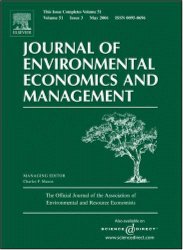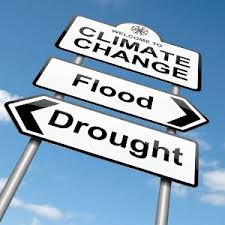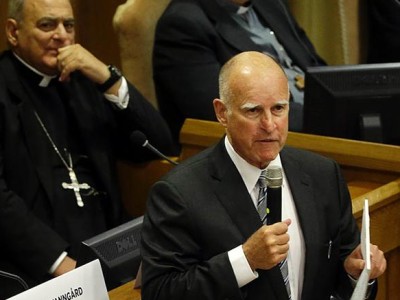Regulatory Policy
Environmental Law as a Three-Legged Stool
Ad. Law provides the process and institutions, while Torts and Property concepts underly the substance.
Environmental law is a formidable tangle of long, complicated statutes and sometimes arcane judicial doctrines. But underneath all that, I’d like to suggest, there’s a very simple structure, rooted in legal basics. The procedural and structural framework for environmental law is provided by administrative law, supplemented in a few areas like Superfund by ordinary civil …
Continue reading “Environmental Law as a Three-Legged Stool”
CONTINUE READINGIs Carbon Capture & Sequestration (CCS) the Biggest Threat to the Clean Power Plan?
Exploring potential challenges to EPA’s New Source Performance Standard: PART I
This post is the first in a mini-series exploring likely legal challenges to EPA’s New Source Performance Standard (NSPS) for power-plant greenhouse gas emissions under Clean Air Act § 111(b), and how those challenges might affect the Clean Power Plan. I will leave detailed exploration of the Clean Power Plan for later posts, but suffice …
CONTINUE READINGWhat’s New in Environmental Economics?
Some interesting recent publications.
It sometimes takes awhile for journals to reach my desk as they circulate among faculty, so this isn’t hot off the presses. But I’ve been looking at some recent issues of JEEM (the Journal of Environmental Economics and Management), and I found a number of very interesting articles. Fully grasping the articles would require a …
Continue reading “What’s New in Environmental Economics?”
CONTINUE READINGResources on the Clean Power Plan
and EPA’s Other Rulemakings under Clean Air Act § 111
On August 3rd, EPA released its long-awaited Clean Power Plan, which implements Clean Air Act § 111(d) to set the first-ever national standards for carbon emissions from existing fossil-fuel-fired power plants. The Clean Power Plan calculates reasonably achievable performance rates for existing coal, oil, and natural gas power plants across the country, and assigns an …
Continue reading “Resources on the Clean Power Plan”
CONTINUE READINGThe Shadow Price of Carbon
Merging Cost-Benefit Analysis and Feasibility Analysis
The U.S. government has devoted a lot of time and effort to estimating the social cost of carbon. This is basically a standard exercise in cost-benefit analysis, following a familiar three-step process: 1. Impacts. Figure out the physical impacts of the emissions. This involves setting up some emissions scenarios and then running computer simulations to …
Continue reading “The Shadow Price of Carbon”
CONTINUE READINGCan We Trust the Science? The Challenge of Irreproducible Results
In the peer review process, articles submitted to scientific journals are sent to experts in the field who then assess the methodology, results and conclusions. Based on their feedback, authors often revise and re-submit, publishing an improved article as a result. Peer reviewers rarely attempt the actual experiments described in the paper. Irreproducible results are …
Continue reading “Can We Trust the Science? The Challenge of Irreproducible Results”
CONTINUE READINGAnd a Child Shall Sue Them: Ambitious New Climate Lawsuit Filed Against Obama Administration
Will This Litigation Be More Successful Than Earlier, Related “Atmospheric Trust” Lawsuits?
Late last week, attorneys representing children from around the nation filed a provocative new lawsuit in federal court, arguing that the Obama Administration is violating the children’s constitutional rights by not taking far more dramatic steps to curb greenhouse gas emissions and address climate change concerns. The newly-filed complaint in the lawsuit, Juliana ex rel. …
CONTINUE READINGCA Supreme Court Rejects California State University’s CEQA Dodge–Again
Justices Hold CSU Can’t Pass the Buck re: Environmental Mitigation Measures Tied to Campus Expansion
In an important decision issued last week, the California Supreme Court forcefully rejected the California State University’s efforts to avoid paying for mitigation measures needed to offset the adverse environmental impacts associated with CSU’s ambitious expansion plans. That’s welcome if predictable news from a court that has in recent years been protective of the state’s bedrock …
Continue reading “CA Supreme Court Rejects California State University’s CEQA Dodge–Again”
CONTINUE READINGCalifornia Governor Jerry Brown: Environmental Saint or Sinner?
Brown’s National & International Environmental Reputation Disputed by Some California Environmentalists
California Governor Jerry Brown has had a most eventful 2015, especially when it comes to environmental policy. He started the year fresh from an overwhelming election victory last November, earning him an unprecedented fourth term as California’s chief executive. Brown began 2015 by declaring a state drought emergency and becoming California’s “educator-in-chief,” repeatedly warning state …
Continue reading “California Governor Jerry Brown: Environmental Saint or Sinner?”
CONTINUE READINGA Case of Reverse Causation?
Tomorrow’s Emission Determine Today’s Social Cost of Carbon
Here’s the weird thing: the social cost of carbon today, depends significantly on the year-by-year emissions of carbon in the future, which we obviously don’t know. (Because it depends on our own future actions!) It takes some explanation to show why that’s true and how it matters. If you know a bit about climate policy, you know …
Continue reading “A Case of Reverse Causation?”
CONTINUE READING












